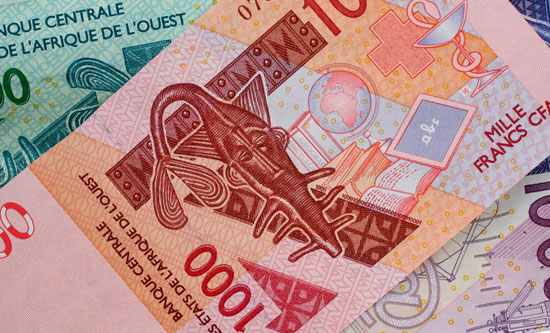
On 21 December 2019, at a summit in the Ivory Coast, French president Emmanuel Macron labelled French colonialism a ‘profound mistake’, and announced the end of the West African CFA currency union. This neocolonial arrangement gives France significant control over the monetary policy of eight West African nations – Ivory Coast, Senegal, Mali, Burkina Faso, Benin, Niger, Togo and Guinea-Bissau. For Le Monde (23 December 2019) the change is ‘more than a symbol’; while the Financial Times (1 January) praises ‘a revolution in Africa’s relations with France.’ The reality, however, is that French imperialism has no intention of surrendering its deadly grip on Africa.
What is the CFA franc?
After the Second World War, France faced the task of reconstructing its war-shattered economy. On 26 December 1945, it launched a new currency – the franc of the French colonies in Africa, or CFA franc. It was undervalued against the domestic franc at 1.7:1, and was then further undervalued in 1948 to 2:1. This allowed France to import cheaply and export dearly – plundering the colonies to fund reconstruction in France.
Upon independence, France insisted that its former African colonies continue to use the CFA franc. In 1960 when Guinea announced it was to exit the CFA union, France’s SDECE foreign intelligence services organised the counterfeiting of millions of Guinean francs, in an attempt to cause an inflation spiral. When this failed, the SDECE simply armed President Sekou Touré’s opponents.
Today, the CFA franc is split across two currency unions in west and central Africa. Countries in the union must hold half of their foreign currency reserves in France. A French official sits on the board of the central bank. The currency is freely convertible into the euro and there is freedom of movement for capital within the union. This has facilitated vast illicit capital outflows from Africa into Europe – one 2010 report conservatively estimates $99.73bn of such outflows between 1970 and 2008.*
Apologists for the CFA argue that it actually ‘costs’ the French central bank, which pays 0.75% interest on the foreign currency deposits, and that it creates economic stability in the African nations where it operates. That ‘stability’ may cost a small amount, but it has been instrumental in allowing French companies like Orange, Bouygues, and Bolloré to dominate west and central African telecommunications, ports and shipping; and in encouraging plunder by energy multinationals like Areva, described in a 2016 Wikileaks cable as engaged in a ‘new dirty war for Africa’s uranium and mineral rights’.
The neocolonial ruling classes in the fifteen African nations have also benefited, living off imported luxuries and kept in power with French military and covert assistance, while their nations remain locked in underdevelopment, exporting under-valued primary resources.
The new currency, the ‘eco’, will remain pegged to the euro, freely convertible, and guaranteed by France, but without the requirement that France holds half of foreign currency reserves. France will have the right to appoint an ‘independent’ member to the regional central bank. Thus, the economic relation between France and the neocolonial African ruling classes – the key to France’s domination – will remain. France will retain a powerful lever to ensure political obedience by threatening to abandon its guarantee of the currency.
Why abandon the CFA franc?
France’s role in Africa, not least its military interventions in the Sahel region in recent years, have made it deeply unpopular across Africa. The CFA franc is widely recognised as a key plank of French neocolonialism, and by ‘abandoning’ it, the neocolonial rulers hope to strike a pose of ‘independence’. The neocolonial character of the change is underlined by the fact that alongside Macron the leading proponent is Ivorian president Alassane Ouattara, who came to power in 2011 following a military coup involving French armed forces.
For France, the eco presents an opportunity. Plans to create a currency called the ‘eco’ go back to at least 2000 and involve the eight countries of the West African CFA union and seven other non-Francophone countries. These fifteen nations together form the Economic Union of West African States (ECOWAS). The original plan was spearheaded by the non-CFA nations, with the intention of merging the two currencies, strengthening regional trade and thereby fostering development and sovereignty.
France has long attempted to draw non-Francophone West Africa, especially Nigeria, into its orbit. In July 2018, Macron visited Nigeria in the hopes of encouraging French business to invest in Africa’s largest economy and one of the spearheads of the eco project. Accused of ‘kidnapping’ the eco, France is determined to ensure that any regional currency integration process heads off the threat to French interests posed by a Nigeria-led alternative to the CFA franc, forcing West African nations instead to participate on terms favourable to France.
The ‘abandonment’ of the CFA franc is therefore part public relations exercise and part shift of tactics. On the same tour on which he announced the rebranding of the CFA franc Macron re-confirmed France’s commitment to fighting ‘terrorism’ in the Sahel, in a rebuke to the US which has recently built a drone base in Niger but whose erratic foreign policy under President Donald Trump is viewed by Macron as an opening to extend French – and European – power. Underlining France’s determination to extend its dominance, in January 2020 Macron announced that a further 220 troops would be sent to the Sahel to join the 4,500 already present across five countries as part of Operation Barkhane.
Séamus Padraic
FIGHT RACISM! FIGHT IMPERIALISM! 274 February/March 2020




